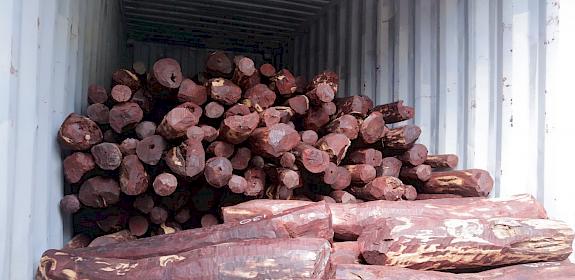LAM To Help Curb Wildlife Trafficking in Mozambique
Maputo, Mozambique, 27th February 2018 — Today, the USAID Reducing Opportunities for Unlawful Transport of Endangered Species (ROUTES) Partnership delivered a training workshop in Maputo for transport staff to learn how they can play a key role in helping prevent the trafficking of wildlife and wildlife products in Mozambique.
During the worship, cabin crew, ground handlers, cargo processors, and other regional airport staff learned how to detect and stop smugglers carrying ivory, rhino horn, and other wildlife products out of Mozambique.
According to a recent ROUTES report analyzing wildlife trafficking in the air transport sector, Mozambique serves as a hotspot for poachers and traffickers supplying wildlife products to Asia, particularly ivory and rhino horn.
Wildlife trafficking is a transportation-intensive activity and smugglers carrying illegal wildlife and wildlife products need to interact with airport and airline staff at multiple points during the journey
Michelle Owen, ROUTES Lead“Increasing the ability of staff to identify and report suspicious activities linked to wildlife trafficking is crucial for stopping traffickers that abuse the transport sector.”
As the elephant population in Mozambique continues to suffer huge losses to poachers, many in the transportation sector are recognizing the need to take action. “Airline staff spends more time with passengers, their baggage, and cargo shipments than customs officers,” says Jon Godson, IATA’s Assistant Director, Aviation Environment. “They can provide a key source of intelligence for the enforcement agencies.”
The USAID ROUTES workshop ensures that airport and airline staff recognizes common wildlife trafficking techniques and are equipped with the materials and resources to help protect Mozambique’s natural heritage from smugglers and traffickers.
The training in Maputo was the first in a series of training workshops that ROUTES will be conducting for airport and airline staff this year at key wildlife trafficking hubs across Africa. Over the next few months, ROUTES will hold training sessions in Kenya, Uganda, Malawi and Ethiopia.
About the ROUTES Partnership

The USAID Reducing Opportunities for Unlawful Transport of Endangered Species (ROUTES) Partnership brings together transport and logistics companies, government agencies, development groups, law enforcement, conservation organisations and donors to disrupt wildlife trafficking activities, and forms a key element of the concerted international response to addressing wildlife poaching and associated criminal activities worldwide. Further information and resources can be found at www.routespartnership.org.
About USAID

The United States Agency for International Development (USAID) is responsible for the majority of overseas development assistance from the United States Government and works to end extreme poverty and promote resilient, democratic societies while advancing security and prosperity for America and the world
About IATA

IATA represents some 265 airlines comprising 83% of global air traffic. For more information, visit IATA.org or follow@IATA2press





